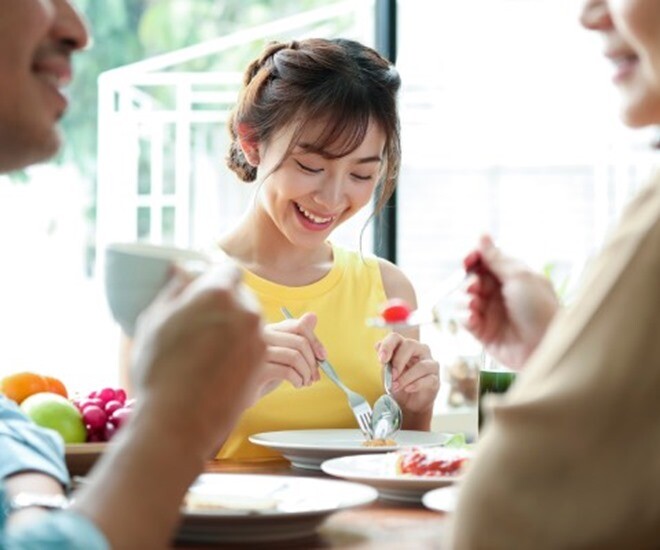Mrs. Kieu, a 60-year-old retired woman, receives a monthly pension of almost VND 15 million.
Her husband passed away when their only son was still in high school. Since then, Mrs. Kieu has been single-handedly raising her son.
To support her son’s education and future home purchase, Mrs. Kieu took on various jobs, regardless of the nature of the work. Her hard work paid off when her son graduated and landed a job with a monthly salary of 6,000 yuan (approximately VND 22 million).
After her son got married, Mrs. Kieu sold their old house in the countryside and contributed her savings to buy a new house for her son and daughter-in-law, while she rented a place for herself.

Illustrative image
However, after her daughter-in-law gave birth, Mrs. Kieu decided to move in with her son and daughter-in-law to help them take care of the newborn baby.
Knowing that her daughter-in-law has allergies, Mrs. Kieu diligently hand-washed not only their clothes but also their bedding to ensure cleanliness. Her daughter-in-law is also a picky eater, avoiding eggplants, beans, tofu, seaweed, cilantro, bell peppers, and turnips. Thus, Mrs. Kieu carefully plans their meals every day to prevent waste and maintain family harmony.
Similarly, when it comes to taking care of her grandchild, Mrs. Kieu is extremely cautious. She even multitasks by holding the baby while doing housework, and whenever she goes out, she takes the baby with her as she doesn’t feel comfortable leaving the baby at home alone.
When her grandson reached school-going age, Mrs. Kieu planned to return to her hometown, but her daughter-in-law asked her to stay to help with the child’s pickup and drop-off, as they both returned home late from work. So, she decided to stay.
However, the conflicts grew more significant, making her feel discouraged, especially since their financial situation was tight, and her children couldn’t earn much. She felt like a burden to her children.
For instance, not long ago, while cleaning up the dishes in the kitchen, Mrs. Kieu saw that her grandson had left a piece of meat uneaten. Not wanting to waste it or store it, she popped it into her mouth. Unfortunately, her daughter-in-law witnessed this.

Illustrative image
Her daughter-in-law immediately confronted her:
– Mom, can’t you eat outside instead of doing it here? And did you eat Xiao Bao’s meat? I was going to save that for him later. That meat is very expensive and rare; I had to queue to buy it.
– No, I ate the leftover piece from his tray, and I didn’t know which piece was the rib.
However, her daughter-in-law didn’t believe her and checked the ribs in the fridge. She immediately went to the living room and accused her husband:
– Honey, your mother ate Xiao Bao’s food, the 3,000 yuan/kg (about 10 million VND) ribs. I only dared to buy a little to supplement the child.
However, instead of scolding his mother like his wife did, the son frankly said to his wife:
– What’s wrong with Mom eating Xiao Bao’s ribs? Don’t mention eating a piece of ribs; she can eat an entire rack of ribs, and it’s fine.
Mom gave birth to me and raised me to this day. She also helped us take care of the children like a nanny in the house, and we haven’t supported her for a single day. Moreover, she contributed her entire pension to help us buy a house and cover our daily expenses. Think about it, with all that she has done, is it worth scolding her over a piece of meat?

Illustrative image
However, the daughter-in-law was not convinced. She said:
– You can’t count your contributions like that. Look around; all the grandmothers help their children take care of their grandchildren. And since she lives here, it’s understandable that she contributes to the monthly food expenses.
The argument between the son and daughter-in-law escalated, with no resolution in sight, leaving Mrs. Kieu feeling even more regretful and depressed. She never imagined that because of her, her children’s family was unhappy. She thought her role was to take care of her grandchildren, but she now realizes that she should have distanced herself from them to avoid this situation.
In reality, whether grandparents should help their children take care of their grandchildren and for how long is a topic of debate as it can bring both benefits and limitations.
We need to consider this issue from multiple perspectives:
1. Family Bonding and Creating a Safe Environment for Children
Grandparents usually have a deep love for their grandchildren. Taking care of their grandchildren not only makes them happy but also creates opportunities for intergenerational bonding. Spending time together can help grandchildren understand and appreciate family traditions and culture.
Many grandparents can provide a safe and loving environment for their grandchildren. They may care for their grandchildren in ways that parents sometimes cannot, especially during the early years when children need more attention.
2. Great Support for Parents
In today’s modern society, many parents work all day, often in stressful jobs. Support from grandparents eases the burden on parents. This not only gives them more time for their work but also helps them maintain better mental health.
Grandparents often have a wealth of experience in raising children. They can share valuable life lessons, helping young parents gain knowledge in caring for and educating their children. This experience is usually invaluable and can help avoid unnecessary mistakes.
3. Various Limitations
However, there can be challenges when grandparents are involved in childcare. There may be differences in parenting methods between grandparents and parents, leading to conflicts. Grandparents may also feel pressured or tired when caring for young children, especially if their health is not optimal.
Balancing Solution
To ensure that grandparents’ involvement in childcare benefits everyone, open communication between generations is essential. Parents should share their expectations and boundaries, while grandparents should also express their views and feelings. Understanding and respecting each other will help reduce conflicts and strengthen family relationships.





































